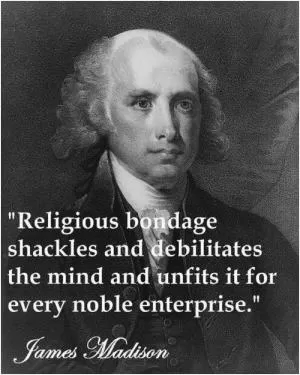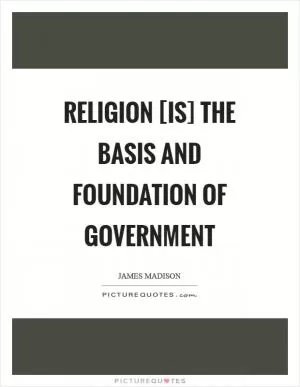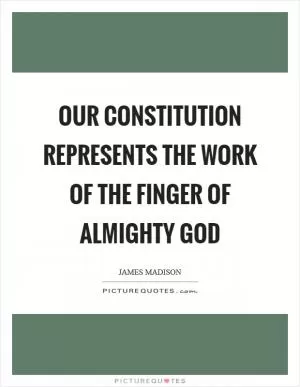A man has a property in his opinions and the free communication of them

A man has a property in his opinions and the free communication of them
James Madison, one of the Founding Fathers of the United States and the fourth President of the country, was a staunch advocate for freedom of speech and expression. He firmly believed that every individual has a property in their opinions and the free communication of them. This belief was not only a fundamental principle for Madison but also a cornerstone of the American democracy that he helped to establish.Madison's commitment to the freedom of speech can be traced back to his involvement in drafting the Bill of Rights, specifically the First Amendment which guarantees the right to freedom of speech, religion, and the press. As a key architect of the Constitution, Madison understood the importance of protecting the rights of individuals to express their opinions without fear of censorship or retribution from the government.
In his famous essay titled "Property," Madison argued that the right to freedom of speech is a natural right that is inherent to every individual. He believed that just as a person has a property in their material possessions, they also have a property in their thoughts and opinions. Therefore, any attempt to suppress or limit the free communication of these opinions is a violation of a person's natural rights.
Madison's views on freedom of speech were not just theoretical. Throughout his political career, he consistently defended the rights of individuals to express their opinions, even when those opinions were unpopular or controversial. As a member of the Virginia House of Delegates and later as a Congressman, Madison fought against attempts to restrict freedom of speech and press, arguing that a free exchange of ideas is essential for a healthy democracy.












 Friendship Quotes
Friendship Quotes Love Quotes
Love Quotes Life Quotes
Life Quotes Funny Quotes
Funny Quotes Motivational Quotes
Motivational Quotes Inspirational Quotes
Inspirational Quotes